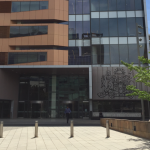Will I Get Parole? Parole Authority Decision-Making in NSW

Parole is the release of an inmate(the parolee) into the community after the expiry of their ‘non-parole period’ (the minimum term they must spend in prison) and before the expiry of their full term of imprisonment.
So, for example, an inmate who is given a non-parole period of 7 years and a full term of 10 years in prison will be eligible to apply for parole after 7 years.
What is the Purpose of Parole?
The primary purpose of parole is to ensure the smooth transition of inmates back into society by ensuring they have access to appropriate support and rehabilitation services such as mental health support, and drug and alcohol programs, before the expiration of their full terms of imprisonment. Parole therefore attempts to avoid the situation where a person might be ‘left to their own devices’ in the community without support.
In addition to providing access to support services, parole is intended to ensure the community is protected through the supervision of inmates.
A parolee will constantly face the prospect of their parole being revoked, which acts as an incentive to comply with parole conditions and participate in rehabilitation programs – something which can in turn reduce the likelihood of reoffending.
Parole Laws in New South Wales
Here in NSW, the Crimes (Sentencing Procedure) Act 1999, sets out a number of important rules to be applied by Courts in relation to parole.
Whilst the Act is complicated and nuanced with respect to how sentences of imprisonment are to be set, the basic requirements in relation to parole can be summarised as follows:
- Section 46 prohibits parole from being set if a Court sentences an offender to imprisonment of 6 months or less.
- Section 44 requires a Court to split sentence of imprisonment between a parole and a non-parole period. As stated, a non-parole period is the time an offender must spend behind bars; the parole period is the time he or she may apply for released, and if successful be subject to supervision in the community.The law dictates that the parole period must not exceed one third of the non-parole period unless there are “special circumstances”. In other words, if a person is sentenced to 9 years’ imprisonment, a non-parole period of 6 years and 9 months will be set – with a parole period of 2 years and 3 months – unless some special circumstanced are found by the court. A lower percentage (eg 50%) may be set as a non-parole period if special circumstances are found eg for a young offender with excellent prospects of rehabilitation.
- Section 50 provides that if a person is sentenced to 3 years of imprisonment or less, they are entitled to be released automatically to parole upon the completion of their non-parole period.The corollary is that if a Court sentences someone to a period of imprisonment of greater than three years, there is no automatic right of release to parole, and the State Parole Authority (‘SPA’) must make an administrative decision on whether to release an offender at the completion of their non-parole period.
Matters Considered by the State Parole Authority
Where an offender is sentenced to more than three years imprisonment, Section 135 of the Crimes (Administration of Sentences) Act 1999 (CSPA) prohibits the State Parole Authority from granting parole unless it is satisfied, on the balance of probabilities, that such a grant is ‘appropriate in the public interest’.
Making that decision, the Authority must have regard to a range of matters including:
(a) The need to protect the safety of the community,
(b) The need to maintain public confidence in the administration of justice,
(c) The nature and circumstances of the offence to which the offender’s sentence relates,
(d) Any relevant comments made by the sentencing court,
(e) The offender’s criminal history,
(f) The likelihood of the offender being able to adapt to normal lawful community life,
(g) The likely effect on any victim of the offender, and on any such victim’s family, of the offender being released to parole,
(h) any report in relation to the granting of parole to the offender that has been prepared by or on behalf of the Probation and Parole Service.
It is evident from the legislation that public safety and the interests of victims are important considerations. If an offender is too dangerous to be released, they should ordinarily be refused parole and required to serve their entire sentence in prison.
Conditions of parole
A grant of parole will always have conditions. The standard conditions are:
- Be of good behaviour.
- Not commit any criminal offences.
- Adapt to normal lawful community life.
- report to a community corrections officer at the times and places directed, and
- comply with all reasonable directions from that officer, including:
a) place of residenceb) participating in programs, treatment, interventions or other related activitiesc) participating in employment, education, training or other related activitiesd) not undertaking specified employment, education, training, volunteer, leisure or other activitiese) not associating with specified peoplef) not visiting or frequenting specified places or areasg) ceasing drug useh) ceasing or reducing alcohol usei) drug and alcohol testingj) monitoring your compliance with the parole orderk) giving consent to third parties to provide information to the officer that is relevant to your compliance with the parole order.
The parolee must permit the officer to visit and enter the place of residents.
Review hearings
Parole review hearings are held from Tuesday to Friday in Court 1A of the Sydney West Trial Courts, which is located at 6 George Street, Parramatta.
The hearings are normally presided over by five people – a judge, police officer, community corrections officer and two members of the public, and are held in open court.
Inmates appear via audio-visual link and their criminal defence lawyers attend in person.
The hearings can involve evidence being given by those involved, documents tendered and verbal submissions made – after which a decision is made regarding parole and its conditions.
The defence team at Sydney Criminal Lawyers® is experienced in representing clients at review hearings and can be contacted anytime on (02) 9261 8881 to provide accurate advice and outstanding representation for you or your loved one.
Our Parramatta offices are located at Suite 3, 27 Hunter Street – across the road from the Justice Precinct Carpark.






